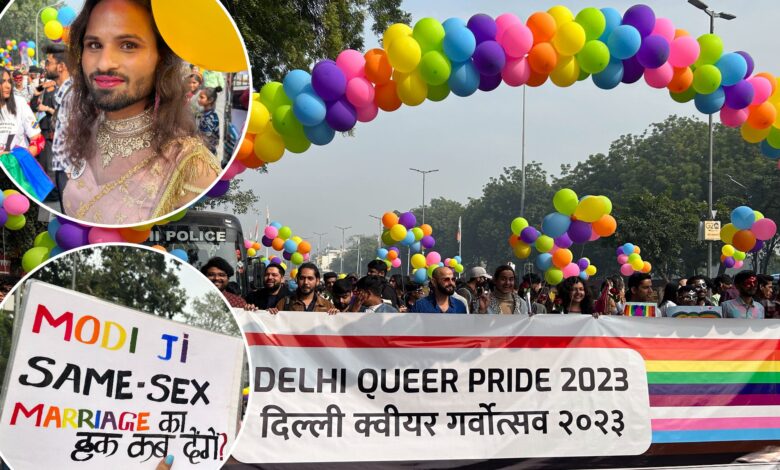More than 2,000 people participate in India’s LGBTQ+ pride march

NEW DELHI – More than 2,000 people took part in a gay pride event in New Delhi, waving rainbow flags and multicolored balloons as they celebrated sexual diversity in India but also raised concerns about the country’s restrictive laws.
Dancing to the sound of drums and music, participants walked for more than two hours to the Jantar Mantar area, near the Indian Parliament. They carried signs that said “Equality for all” and “Queer and proud.”
The annual event comes after India’s top court refused to legalize same-sex marriages in an October ruling that disappointed LGBTQ+ rights activists in the world’s most populous country.
“It’s not about marriage. It’s about equality. Everyone should have the same right because that’s what our constitution says,” said Noor Enayat, one of the volunteers organizing this year’s event.
Earlier this year, the Supreme Court’s five judges heard 21 petitions seeking to legalize same-sex marriage in India.
The judges called for measures to raise public awareness of LGBTQ+ identity and establish hotlines and safe houses for those community members facing violence. They also urged the state to ensure that same-sex couples do not face harassment or discrimination in accessing basic needs, such as opening a joint bank account, but stopped short of granting legal recognition to same-sex unions.
The legal rights of LGBTQ+ people in India have been expanding over the last decade, mainly as a result of the intervention of the Supreme Court.
In 2018, the high court struck down a colonial-era law that punished gay sex with up to 10 years in prison and expanded the gay community’s constitutional rights. The decision was seen as a historic victory for LGBTQ+ rights.
Despite these advances, Prime Minister Narendra Modi’s Hindu nationalist government resisted legal recognition of same-sex marriage and rejected several petitions for it. Some religious groups had also opposed same-sex unions, saying they went against Indian culture.
Homosexuality has long been stigmatized in traditional Indian society, although in recent years there has been a change in attitudes towards same-sex couples. India now has openly gay celebrities and some high-profile Bollywood films have dealt with gay themes.
According to a Pew survey, acceptance of homosexuality in India rose 22 percentage points to 37% between 2013 and 2019. But same-sex couples often face harassment in many Indian communities, whether Hindu, Muslim or Christian.



